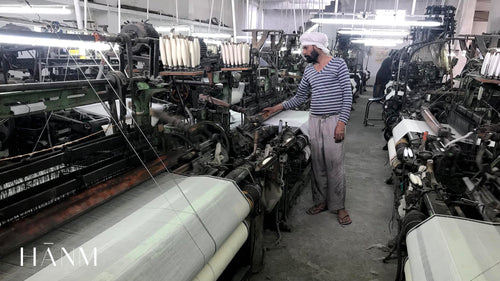
Ethical production refers to the process of manufacturing goods and services in a manner that is fair, responsible, and sustainable. It involves the well-being and rights of workers, minimising negative environmental impact, and promoting transparency and accountability throughout the supply chain.
Ethical production also includes adhering to labor laws, paying fair wages, providing safe working conditions, and avoiding practices such as child labor, forced labor, and discrimination. Overall, ethical production aims to prioritise people and the planet over profits - everything we stand for as a brand.
Here are some key aspects of ethical production we adhere by:
1. Materials
Our ethical production entails weaving sustainable and eco-friendly materials such as ethically sourced Cotton, Lyocell, Bamboo, Modal, and recycled fibers to name a few. Whichever materials we weave or source, you can rest assured they have been selected based on their longevity and quality.
2. Fair Trade
Our designs are produced under fair trade principles, meaning workers receive fair wages and work in safe and ethical conditions, which also offer women in nearby villages opportunities for work. We are Fair Trade Certified; Global Organic Textile Standard (GOTS), azo-free and OEKO-TEX certified.
3. Transparency
As a brand, we aim to be as transparent as possible by showing our customers behind the scenes footage of our production process from start to finish. You can find behind the scenes footage on both our socials, Youtube channel and website. We're always open and honest about our processes and love that we can share this with our customers.
5. Dyeing and Printing
We use azo-free dyes that are free from toxic chemicals. Our advanced digital printing technologies also minimise water usage and energy consumption compared to traditional printing methods.
6. Waste Reduction: As a growing brand, we're always conscious of our resources and ensuring we create as little waste as possible in both production and daily business practices as a company. For example, any left over fabrics from our hijabs that have been dyed or printed are then made into our designer bandanas resulting in waste reduction in our production process.

When we have hijabs with minor blemishes, we discount it even if we make a little profit, we would much rather it was purchased and used than thrown away and wasted. We don't send any of our hijabs to the landfill. Our designs are either sold or discounted.
In our 2024 rebrand, we made made sure to turn over our stock in an ethical manner where we didn't throw out branded materials just because we had changed our name. We knew it would be a process of gradual change.
7. Longevity and Durability
Our hijabs are woven from high-quality fibers and are made by experienced and skilled workers to ensure they withstand the test of time. By investing in our designs, you not only experience hijabs that have been exclusively designed by us but it also eliminates the need for frequent replacements, which minimises waste as a result.
8. Ethical Business Practices
By purchasing from us, you're supporting a business that is committed to ethical practices and production processes. As a company, people matter to us more than huge profits, which is why we give back through our orphan sponsorships and charity. We don't believe wealth should be hoarded, it should be distributed and shared, especially amongst the worlds most vulnerable. Each time you purchase our designs, you help support our cause.



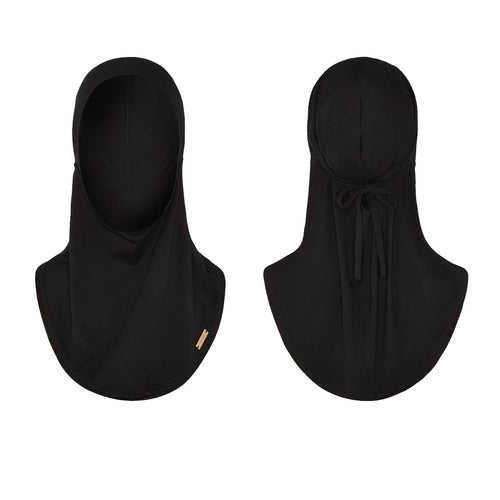
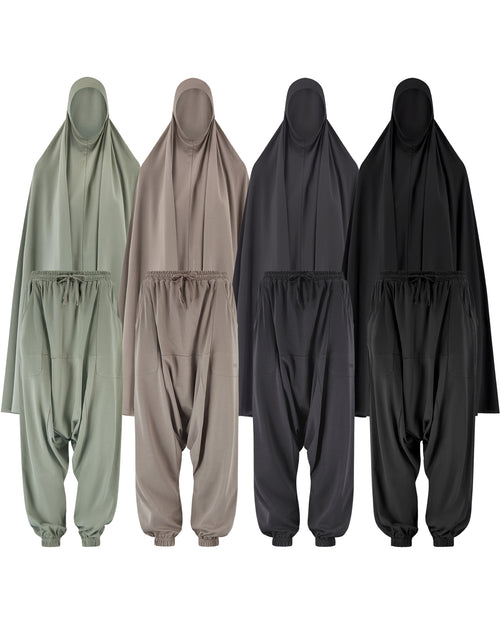

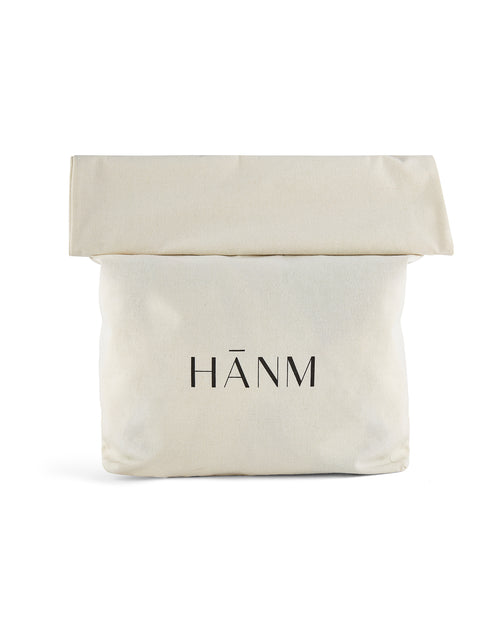

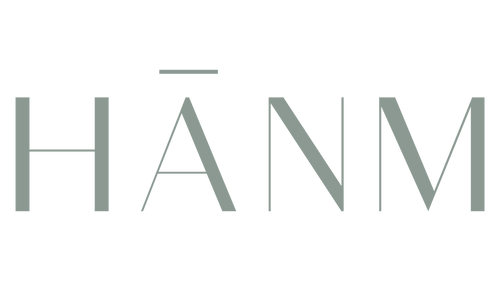


 UAE Store
UAE Store
 UK Store
UK Store